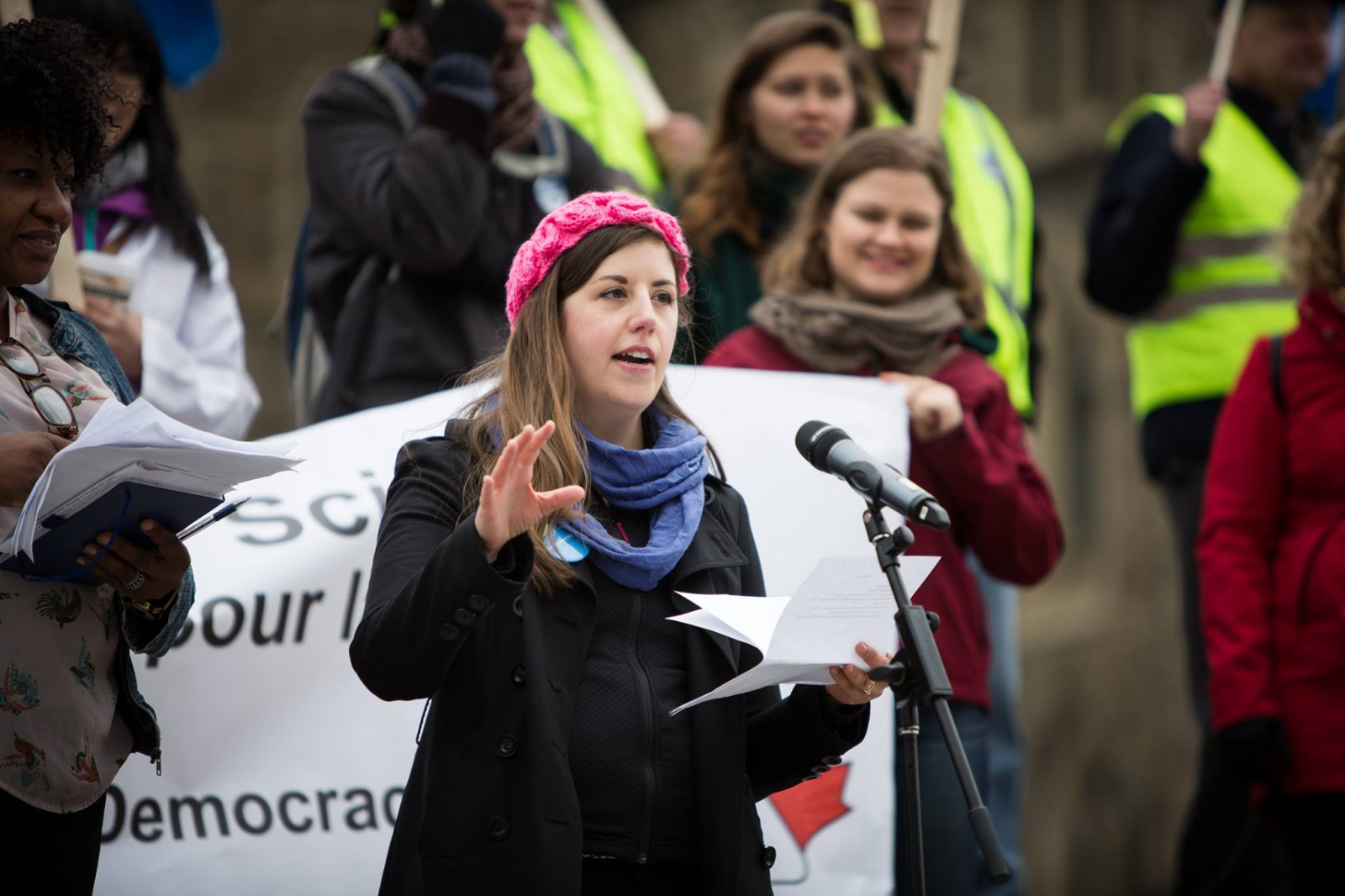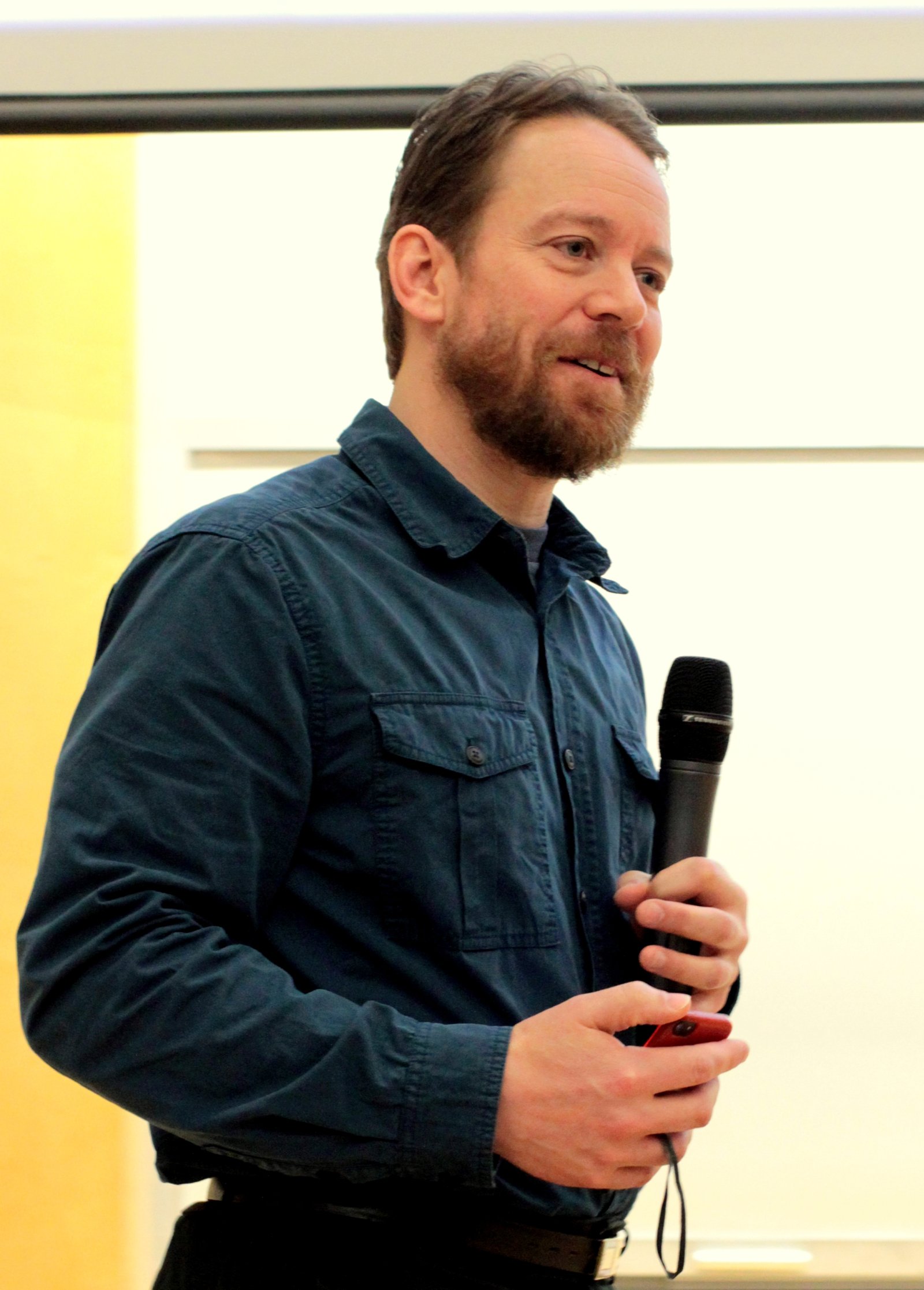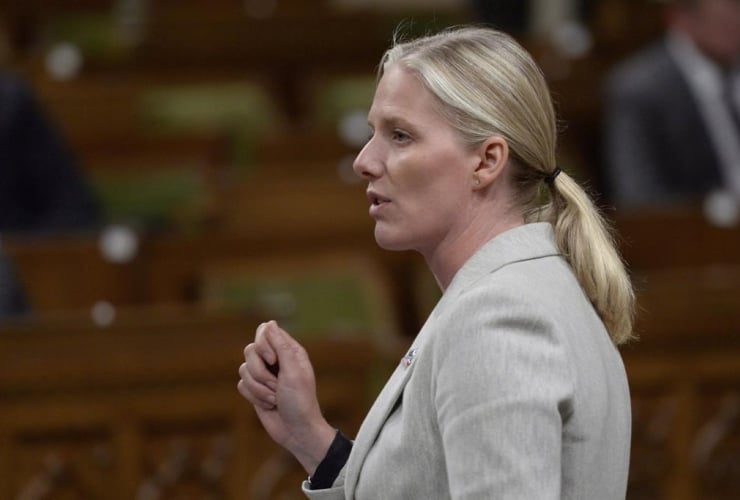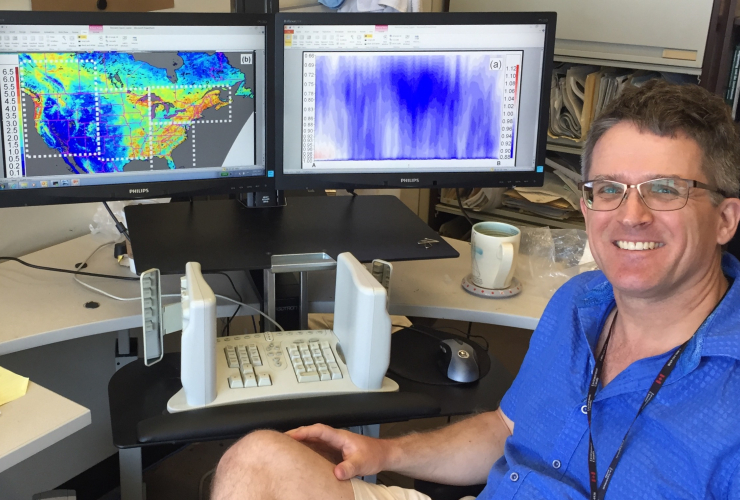Five years ago, climate change scientists said they were in the midst of a severe funding crisis.
For more than decade, they had benefited from tens of millions of dollars in federal funding, which allowed Canada’s academic leaders to build a robust research network that pioneered significant breakthroughs. An independent organization, the Canadian Foundation for Climate and Atmospheric Sciences, evaluated their project proposals and allocated the federal dollars for a wide range of research topics.
It led to many groundbreaking studies across the country on drought, extreme weather, permafrost and more. But it was all about to end, because former prime minister Stephen Harper's government had decided to turn off the financial taps.
Scientists started speaking out.
In the face of mounting public pressure, Harper’s government introduced a new program with dedicated funding for climate change research, outside of federal departments, providing a temporary solution.
But now, with that money drying up, many scientists say it’s all happening again, putting several environmental monitoring programs, including those tracking key climate change indicators, in jeopardy.
Budgets for seven key independent projects are set to expire, including the Polar Environment Atmospheric Research Laboratory (PEARL) — arguably the most important Arctic research lab in the world.
“There does seem to be a strong element of history repeating itself here,” said James Drummond, a professor from the Department of Physics and Atmospheric Science at Dalhousie University in Halifax, who has led research at the Arctic lab.
“The PEARL facility nearly went under in 2013 — in fact, we were within a few weeks of starting the shutdown when we got new funding. The problem is now repeating itself, since we will run out of funding early in 2018 and there seems to be no prospect of any additional funding.”
Prime Minister Justin Trudeau’s Liberals swept into power in the 2015 election with a promise to put scientific evidence at the heart of government decisions. But despite the rhetoric from Liberals about paying attention to science and making climate change a key priority, the Trudeau government continues to struggle in its efforts to rebuild what was lost during the Harper era.
Even if PEARL gets new funding today, there will still be gaps in data, noted Katie Gibbs, executive director of Evidence For Democracy, a non-profit group that advocates for government decisions based on evidence.

Canada's academics are still recovering
“It’s a one-of-a-kind research facility,” Gibbs told National Observer, speaking about PEARL. “It’s the most northern (civilian) Arctic research centre studying atmospheric change in the world.
"So this is not just important to Canadian science, it’s absolutely important to global science and I think it also represents the role that Canadians science can play in international research, especially around arctic science and arctic issues.”
Even so, she said, gaps in the data are still preferable to no data, and Evidence For Democracy would still like to see new funding announced immediately.
Kimberly Strong, a physics professor at the University of Toronto who has worked at PEARL validating data for a satellite ozone monitoring instrument, also said it will take another year to get a program in place.
That's in addition to the lead time between the announcement of any funding program and actually getting calls out for proposals, she said — not to mention getting peer review in place, and other typical steps in the funding process for research.
Thomas Pedersen, a professor from the school of earth and ocean sciences at the University of Victoria, intimately knows what research is now in jeopardy.
He's the chairman of the Canadian Climate Forum, which emerged from the ashes of the Canadian Foundation for Climate and Atmospheric Sciences after it was starved of its funding between 2012 and 2013. He said the Harper government’s funding choices “resulted in a decline in climate-research support of nearly 50 per cent nationwide.”
The academic community has yet to recover, he added, despite the Trudeau government “being much more progressive in facing the immense climate change challenge.”
“As a nation, we must do better in supporting research on the physics of our changing planetary climate, on adapting to what will be — and already is — a different future, and reaching out more vigorously to Canadians to make the case that dealing with the climate challenge presents us with immense new-economy opportunities.”

Scientists want long-term commitment
As PEARL and other environmental monitoring projects face their potential demise, Canada plays host this week to a prestigious gathering of the Intergovernmental Panel on Climate Change (IPCC), featuring scientists and government officials from around the world.
And later in the month, the world will celebrate the 30th anniversary of the Montreal Protocol, a monumental treaty that changed the course of history by shifting humanity’s damage to the ozone layer into reverse gear.
Environment and Climate Change Minister Catherine McKenna, who will open the IPCC conference this week in Montreal, said in an interview that the Liberal government wants to recognize the “very important work” of scientists in government as well as in academic institutions.
“It has been a top priority of mine to ensure that we have capacity, that we are rebuilding capacity of our scientists that we’re working with other groups, with other organizations, and that's certainly been a key priority," she said Aug. 31, after unveiling a new website designed to engage children on climate change.
"I spent a lot of time in the Arctic this summer, where we’re seeing the impacts of climate change. We opened a new laboratory, research station, in the high Arctic. We need to understand better the impacts of climate change there, and the acceleration of climate change, and I’m working with my colleagues across government.”
Gibbs of Evidence For Democracy has noted that the new federal Arctic lab, announced by the Harper government, is 1,200 kilometres south of PEARL and won’t be able to do the same level of monitoring and research.
All in all, many scientists, contacted by National Observer for this article said the government was missing a key issue: creating a stable environment for long-term research. Public and private sector scientists in Canada and researchers abroad say what’s needed now is long-term monitoring of the protective ozone layer in the upper atmosphere, as well as the smog-inducing ozone near the surface.
“You need to look at the ozone layer for 10, 20 years,” said Wolfgang Steinbrecht, a scientist at Germany's national meteorological service who did his doctorate in Toronto and worked at PEARL.
“Canada is playing a part, but it could play a bigger part," he added. "That will take a long-term commitment.”
The climate forum, Pedersen said, has also recognized that “outreach efforts nationally must be strengthened,” but he said “realizing them will require support, and that remains an unfilled need.”

Ending funds for Arctic lab 'boggles the mind'
Ottawa has not yet announced that funding for the Climate Change and Atmospheric Research (CCAR) program, which supports PEARL and six other projects, will be renewed after it runs out at the end of the year.
Personnel at the lab are already looking elsewhere for work, and money has been set aside to help with the logistics of closing up shop, said University of Toronto's Strong.
“CCAR is really what’s funding most of the science,” she said. “It’s not clear where people can go to keep the funding going for these projects... we’re certainly not getting any indications that there’s a delayed announcement, or there will be an announcement.”
Officials point to other funds set up by the government, and say researchers are free to apply to those, but it’s unclear how quickly that money can start flowing.
“Right now we’re taking measurements as normal, but sometime next year, we’ve got a little bit of money put aside to shut things down, and if there’s nothing to keep us going” the lab will find it hard to stay open, she said.
The situation is leading a string of prominent scientists to raise concerns. Christos Zerefos, president of the International Ozone Commission, said there are “uncomfortable feelings” in the scientific community studying ozone.
“We have strongly supported... that the Canadian government should continue funding the polar ozone research program,” he told National Observer.
Environment and Climate Change Canada scientist David Tarasick, who has spent over 30 years in the department, also called the move surprising. The CCAR programs, he said, “gave quite a boost to atmospheric science.”
"There doesn’t seem to be anything in the wings right now," he said in an interview. "That kind of surprises me, because usually, something else comes along. Otherwise, how do you fund all the people who are halfway through their careers?"
Thomas Duck, an associate professor in Dalhousie's physics and atmospheric science department, said “it boggles the mind that the federal government would consider ending funding” for PEARL.
“This represents a lot of lost scientific capacity, which impedes scientific progress,” he said, adding the end of CCAR will be “devastating.”
"PEARL is definitely not something that everybody has," added Steinbrecht. "If I was the minister, I would say, 'This is something where we’re strong, so let’s stay strong in that.'"

New centre 'not intended to replace' climate fund
Trudeau has appointed an award-winning scientist to his cabinet, after winning the 2015 election to address issues like these.
But the office of Trudeau’s point person on ensuring evidence-based decisions, Science Minister Kirsty Duncan, declined an interview with National Observer for this story.
An official from the ministers office, speaking on background, said the government understands that "the most up-to-date evidence is necessary to mitigate the harmful effects of climate change,” and is “taking a comprehensive approach to addressing this important issue, including significant investments in climate change research across government."
The official pointed to the most recent federal budget’s announcement of $73.5 million for a new Canadian Centre for Climate Services — part of a $260-million pot to implement government commitments on adaptation and climate resilience.
But that new climate services program was "not intended to replace" the program running out of money, confirmed Marissa Harfouche, a spokeswoman for Canada’s federal environment department, which will administer the new program.
"The details of the CCCS are not yet finalized. However, the planned focus of this centre is not research, but rather the sharing of climate-related information," she explained.
Harfouche said the centre will instead "work with provincial, territorial, Indigenous and other partners to make it easier for governments, communities, decision-makers, businesses and organizations to access data and information on climate science, and help support climate adaptation decision-making across the country."
The official in Duncan's office also noted the government's $40-million commitment to the National Research Council to "integrate climate resilience into building codes that will help prepare communities for the effects of climate change." Investments like that, the official said, "serve as proof of our government's commitment to addressing the threat posed by climate change in a concrete and comprehensive way."
Duncan’s press secretary, Ann Marie Paquet, also pointed out that Duncan has two upcoming science-related announcements in British Columbia this week: one connected with a hydrogen radio telescope, and another on the Natural Sciences and Engineering Research Council’s Discovery (NSERC) Discovery Grants Program, which Paquet called “the biggest science funding announcement of the year.”

NSERC says researchers can compete for fresh funding elsewhere
Lucy Lai, media and public affairs officer for NSERC, which has been running the expiring climate fund, said researchers supported by its dollars can compete for fresh funding through NSERC’s “existing suite of programs, many of which support climate science research.”
Two NSERC programs Lai pointed to are the Discovery grants, which Duncan will be announcing this week, and its Strategic Partnership grants. In addition, she said, the Networks of Centres of Excellence of Canada is hosting a funding competition that is open until Nov. 15.
The organization has four networks that support environmental research: ArcticNet at Université Laval; the Green Aviation Research and Development Network in Montreal; the Marine Environmental, Observation, Prediction and Response Network at Dalhousie University; and the Ocean Networks Canada Innovation Centre in Victoria.
ArcticNet’s current funding began in 2003 and appears to be wrapping up next year, according to NSERC’s website. Current funding for the centre in Victoria began in 2009 and also ends next year, the website indicates, while the green aviation network's funding has been running from 2009 and ends in two years. The Dalhousie centre's current batch of funding is set to run out in 2021.
Based on what its ministers are saying publicly, there’s no doubt that the Trudeau government understands the importance of research projects like these.
“We are a government that believes in science and evidence, and we are certainly seeing clear signs that the planet is warming at a rate that is very concerning and that we all need to be working together,” McKenna told National Observer last week.
“That’s scientists from across the globe, and Canadian scientists, and scientists from all the countries around the world, making sure that we have good science and that we’re making those decisions based on science, and that we’re all working together to really understand the impacts of climate change. We’re seeing extreme weather events, floods, hurricanes, droughts, all over the world. So we all need to be working together.”
National Observer also asked NSERC for a list of government programs outside their council that CCAR scientists can apply for.
In response, NSERC suggested a “sampling” of other government programs that Lai said, “may provide CCAR scientists with alternative funding opportunities” — as long as those scientists are eligible to apply and were competitive candidates.
These programs are the following: a climate change geoscience program at Natural Resources Canada; funded projects at Fisheries and Oceans Canada on oceans and freshwater; a greenhouse gases program and research initiatives at Agricultural and Agri-Food Canada; POLAR Knowledge Canada science and technology research projects; and funding programs at Environment and Climate Change Canada.

Long-term data questioned at another initiative
National Observer reported last month on another example of long-term data that scientists say may be in jeopardy.
Tarasick, the Environment Canada scientist, gave advice to his superiors in 2015 recommending that an ozone monitoring station closed during the Harper era be re-opened. The Liberals say that's still being considered two years later.
That station and another remain closed, and other management changes remain in place, despite Trudeau personally attacking the Conservatives over those decisions when in opposition.
That means long-term data isn’t getting collected, said Tarasick. “It’s a real problem for the scientific community,” he said. Tarasick has recently published peer-reviewed research that made use of earlier data from the stations that were shut down.
“It’s really important to have stable funding, [so] that they can invest in themselves without always looking over their shoulder to where the next meal may be coming from,” he said.
It’s all too familiar for Steinbrecht, who has seen the PEARL lab stopped and started again due to the end of the climate and atmospheric sciences foundation.
“They usually have a program, they pour in a lot of money, they have a grad student do something for two or three years, and then when that is used up, that’s it,” he explained. “That happened when we were there, and it’s happened two or three times in the meantime.”
Meanwhile, Canada continues to tout the lab in international circles. In a presentation to an international ozone monitoring conference in Geneva, Switzerland this spring, Canada’s report labelled the funding-plagued polar lab as a “very well-used and equipped facility.”
McKenna's office has said that this meeting went off without any “negative feedback” for Canada.
However, the meeting did result in one recommendation suggesting that Canada could improve monitoring by submitting more data of UV radiation on a timely basis. This type of data is collected using a type of monitoring device invented by Canadians, called Brewer spectrophotometers.
Everybody has resource constraints, said Environment Canada’s Tarasick.
"My impression overall is that, since we essentially solved the ozone depletion issue with the Montreal Protocol, there isn’t the same level of public interest, and there isn’t the same level of funding and consequence.”
Drummond, the scientist from Dalhousie University, said Canada has a long way to go to catch up to the rest of the world.
“I am in South Africa at the moment in a major conference on atmospheric issues," he said, "and I have to say that Canada is not very present at this conference. I can only look on with envy at research programs in Europe, Asia, Africa, and South America — to say nothing of the United States, which put our programs to shame."
— with files from Mike De Souza
Editor's note: This article was updated at 2:05 p.m. ET on Sept. 11, to clarify that PEARL is the most northern civilian research lab.
Continuing climate change
Continuing climate change science and research needs immediate, sustainable, and annualized funding, NOW.
It's time the current government gets off its ass and commits to this investment, rather than at the 11th hour, just as the next election is imminent.
This sounds like typical
This sounds like typical Liberal Government action. Study, Study and Study and not make a decision. Sad state of affairs. Yet the Liberal Government can fund infrastructure at the blink of an Eye. Set up a bank to handle funds etc.
Of course, our Sunny Ways Prime Minister continues to fly to meetings, meanwhile nothing happens at home.
It's a sad state of affairs and I do not see any sound strategy or effort from the Conservative members in parliament pushing for the projects discussed.
They all need a large kick in the butt. It is time to start doing instead of sitting their collective hands.






Comments